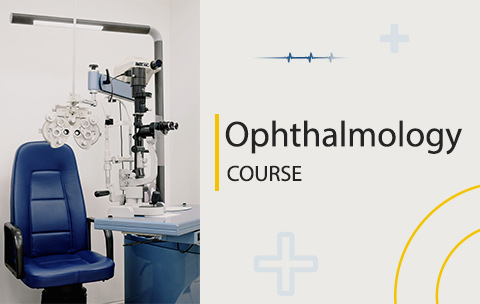
Ophthalmology is the branch of medicine that deals with the diagnosis and treatment of eye disorders. It's a specialized field that requires extensive training and education. Here are some details about ophthalmology courses:
-
Medical School: To become an ophthalmologist, one must first complete a medical degree (MD or DO) from an accredited medical school. This typically takes four years to complete.
-
Residency: After completing medical school, aspiring ophthalmologists must undertake a residency program in ophthalmology, which typically lasts four years. During residency, doctors receive intensive training in the diagnosis and treatment of eye diseases, including surgical techniques.
-
Curriculum: The curriculum for ophthalmology residency programs covers a wide range of topics, including:
- Anatomy and physiology of the eye
- Refractive errors and their correction (glasses, contact lenses, refractive surgery)
- Ocular diseases (e.g., glaucoma, cataracts, macular degeneration)
- Ocular trauma
- Pediatric ophthalmology
- Neuro-ophthalmology
- Ophthalmic pathology
- Ophthalmic imaging techniques
- Ophthalmic surgery (e.g., cataract surgery, corneal transplants, retinal surgery)
- Medical ethics and patient care
-
Clinical Rotations: Residents rotate through various clinical settings, including outpatient clinics, operating rooms, emergency departments, and specialty clinics, to gain hands-on experience in different aspects of ophthalmic care.
-
Certification: After completing residency, ophthalmologists may choose to pursue additional subspecialty fellowship training in areas such as cornea and external disease, glaucoma, retina, oculoplastics, or neuro-ophthalmology. Fellowship programs typically last one to two years.
-
Licensing and Board Certification: Upon completing residency and fellowship training (if applicable), ophthalmologists must obtain a medical license to practice in their jurisdiction. They may also choose to become board certified by passing the American Board of Ophthalmology (ABO) examination or an equivalent examination in their country.
-
Continuing Medical Education (CME): Ophthalmologists are required to participate in continuing education activities throughout their careers to maintain their medical licenses and stay up-to-date with advancements in the field.
Overall, ophthalmology training is rigorous and demanding, but it prepares physicians to provide comprehensive eye care to patients of all ages and backgrounds.

-
Patient Impact: Ophthalmologists have a direct and profound impact on their patients' quality of life. Sight is one of the most valued senses, and being able to diagnose and treat conditions that affect vision can significantly improve a patient's well-being.
-
Variety of Cases: Ophthalmology encompasses a wide range of conditions, from common refractive errors like nearsightedness and farsightedness to complex diseases such as glaucoma, retinal disorders, and corneal diseases. This variety keeps the specialty intellectually stimulating and allows for continuous learning.
-
Technological Advancements: Ophthalmology is a field that often adopts cutting-edge technology to diagnose and treat eye conditions. From advanced imaging techniques to minimally invasive surgical procedures, ophthalmologists have access to innovative tools and technologies that enhance patient care.
-
Surgical Opportunities: Ophthalmology offers the opportunity to perform a variety of surgical procedures, including cataract surgery, corneal transplants, retinal surgery, and refractive surgery (such as LASIK). Surgical skills are an integral part of ophthalmology training, and performing surgeries can be highly gratifying for those who enjoy procedural work.
-
Work-Life Balance: Ophthalmology often provides a good balance between work and personal life. While there may be some on-call responsibilities, particularly in larger medical centers or during residency training, many ophthalmologists have the flexibility to maintain a predictable schedule.
-
Specialization Options: Within ophthalmology, there are opportunities for specialization in various subspecialties such as cornea and external diseases, glaucoma, retina, oculoplastics, pediatric ophthalmology, and neuro-ophthalmology. This allows ophthalmologists to focus on areas of particular interest and expertise.
-
Global Impact: Eye diseases and vision impairment are significant public health issues worldwide. By specializing in ophthalmology, one can contribute to global efforts to prevent blindness, provide access to eye care in underserved communities, and participate in international medical missions.
-
Collegial Environment: Ophthalmology is often characterized by a supportive and collegial professional community. Collaboration among colleagues, sharing of knowledge and expertise, and participation in professional organizations are common aspects of the specialty.
Overall, choosing ophthalmology can offer a fulfilling career that combines clinical expertise, technological innovation, and the opportunity to make a meaningful difference in patients' lives.
